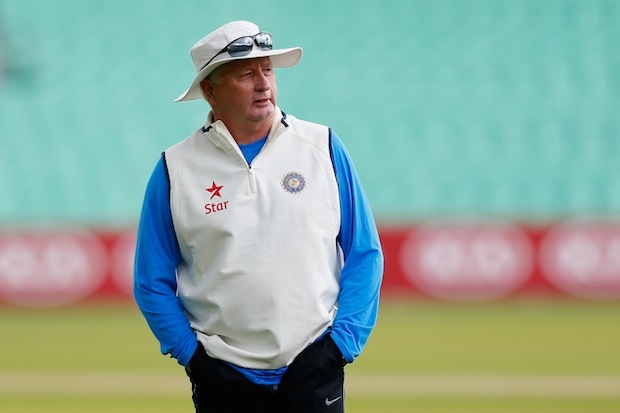Some years ago, when the last Conservative government was limping towards defeat, someone published a book called 101 Uses for a John Major. It was cruel and fairly funny, the premise being that since he couldn’t run his party, there must be some other way he could be employed. Perhaps an Indian publisher is considering a new version after the country wilted in the Test series this summer: 101 Uses for a Duncan Fletcher.
What does the India coach actually do? He called his memoirs Behind the Shades, a vain and self-regarding title, but quite what has been going on behind those shades this summer has been a bit of a mystery. Fletcher has sat there impassively, chewing slightly, inscrutable behind his dark glasses — as Wodehouse might have said, has anyone been less scruted than Fletcher? — watching allegedly the best 11 sportsmen in a country of a billion play like they had never heard of Test cricket. In two of the Tests, their combined efforts over two innings came to only 90 overs — one day’s play.
I tell a slight lie, actually. At one point in the Southampton Test, Fletcher was seen to stand up to watch them. The image of him staring flat ahead reminded some of Al Pacino looking across the lake at the end of The Godfather Part II as scores were settled, except on this occasion the killings were self-inflicted.
What did Fletcher say to them at the end of play? How did he try to convince them that wafting at balls comfortably missing off stump, or bowling misdirected bouncers, or getting wickets with no-balls, might not be the way to win? Did they even listen, or is the side totally run by its powerful captain, M.S. Dhoni? Before he went into cricket, Fletcher was responsible for developing a new number-plate system in Zimbabwe that would be more easily memorable by witnesses in hit-and-run cases. After the collisions he has witnessed this summer, maybe a return to the Ministry of Transport would be wise.
Let’s hear it for Captain Cook, though. This column never doubted him. It’s no surprise that England started to play better when Alastair Cook rediscovered his batting form. Yes, there was no century this summer but three fifties in his past four innings and an average of 50 suggests he is on the up. What a captain does often goes unseen. It’s more than just what happens on the field; it’s about setting a tone in the dressing room and earning the faith of his team. This remains a very young side, but they are starting to pull behind their skipper. And of course now behind his wife, Alice, to whom the captain paid a most generous tribute.
Perhaps the armchair warriors who laid into Cook over the sacking of Kevin Pietersen will now shut up. Here’s a question for them: if Pietersen, who has shown no form in county cricket this summer, had not been dropped, either Joe Root or Gary Ballance would not have been selected this summer. One averaged 104 against India, the other 72. They each scored two centuries. Which would you have left out for KP?
Inspiring winners
Hurrah for the England women’s rugby team, who beat Canada in the World Cup final. I’m sure many of them will have been inspired to take up the sport by watching Jonny Wilkinson and co lift the men’s trophy 11 years ago. Let’s hope that the marvellous Emily Scarratt, scorer of the try that settled the final and calm-headed, sure-booted kicker of four goals, has a similar effect on the next generation, girls and boys. They are professionals in every sense except for getting paid to play. The side was made up of teachers, vets, policemen and lifeguards, just as the men’s team was 25 years ago.
Roger Alton is an executive editor at the Times.







Comments